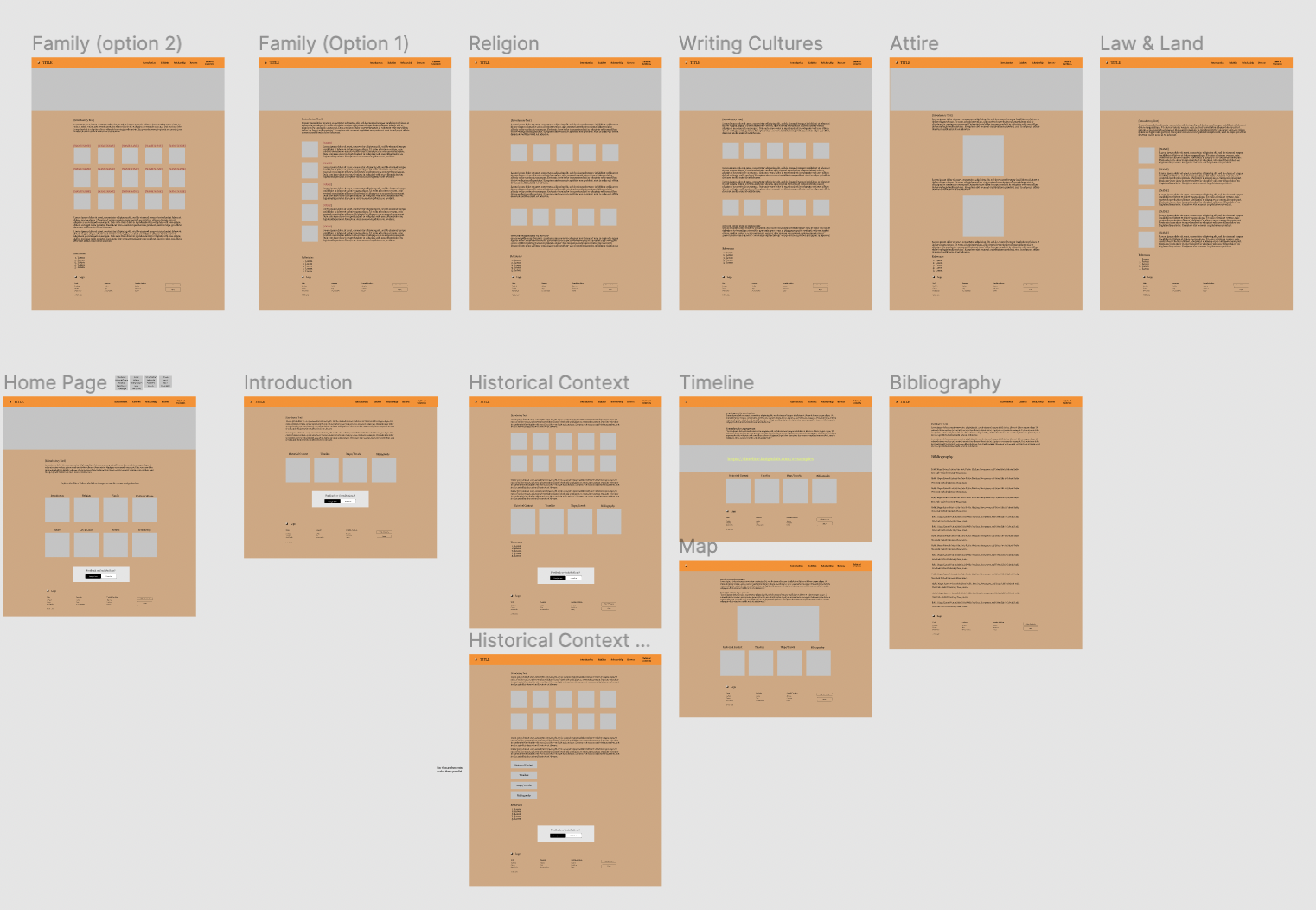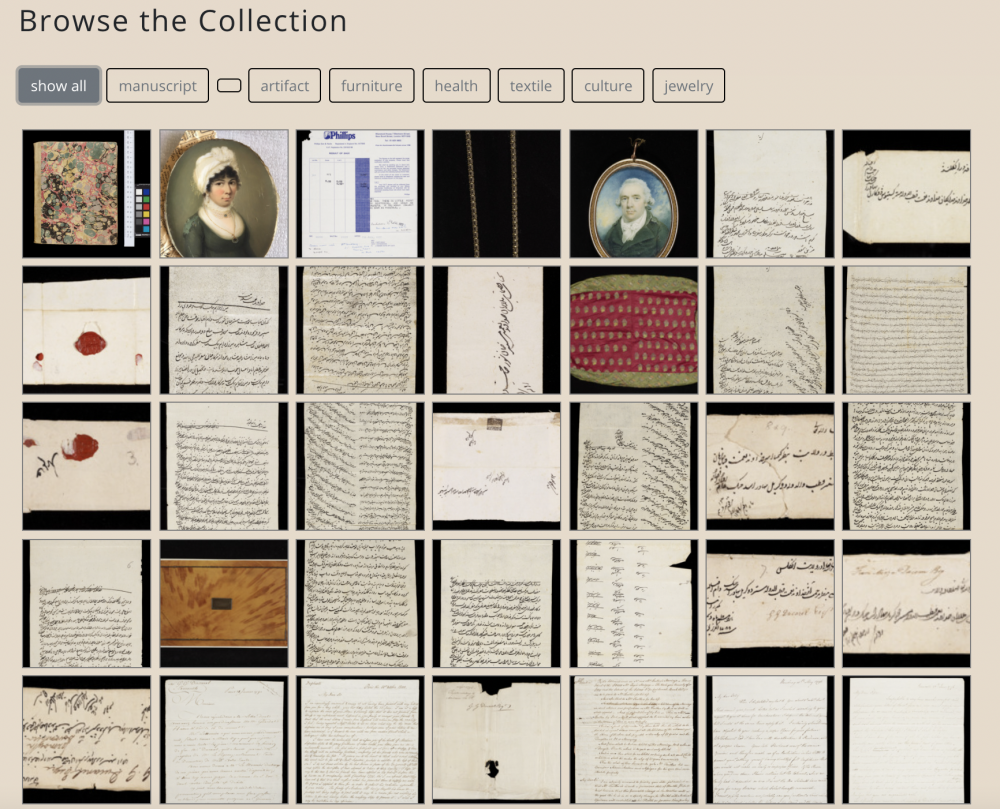____________________
- Project Title: Unstable Archives
- Faculty Lead: Megan Eaton Robb (Religious Studies)
- RDDS Lead: Cassandra Hradil with Emily Esten
- Student Lead: Max Dugan (Religious Studies)
____________________
Rejuvenating a Weary Body through DH Summer Work at the Price Lab
By Max Dugan
The collaboration and camaraderie of working on Unstable Archives this summer felt like monsoons after a drought. As anticipated, I acquired or deepened all sorts of skills and helped produce a deliverable of which I’m proud. What I hadn’t seen coming was how the relationships integral to this labor helped heal my academic body after a year-plus of toiling mostly alone. The pandemic wrought all sorts of disruptions—distorted time, dampened energy levels, and distanced social interactions. I, like many, felt burned out and languid for much the spring and early summer. Fortunately, and unexpectedly, the teamwork and care that the Price Lab team and Professor Megan Eaton Robb naturalized this summer recovered my body from the nagging jetlag of an endless pandemic.
I was overjoyed the moment Professor Robb asked if I’d be interested in supporting her Unstable Archives project as Lead Designer and DH Specialist. Over a year ago while we were collaborating on a project about a Philadelphia area Islamic center’s new space, Professor Robb mentioned another project she was working on about Elizabeth Sharaf un-Nisa Ducarel, a Mughal woman born in South Asia who had Anglified over the course of her marriage to G.G. Ducarel and relocation to England. The project was endlessly fascinating. There was an exceptional family archive from an under-researched liminal moment in modern South Asian history. There were “loud silences,” or meaningful absences of documents that one would expect to be present, in the archive. The imperial power dynamics were often surprising. And the materiality of the archive—the clothing, the jewelry, the penmanship notebook—were so vibrant and layered. If this excites you like it did me, keep an eye out for Professor Robb’s American Historical Review article, and read more about how she conceptualizes the Unstable Archives digital project within the broader landscape of DH and the history of South Asia and gender.
When I began work in earnest, all that excitement turned into a thoroughly rewarding learning experience. On the design side of things, I got to have a hand in, and learn about, most every aesthetic decision related to the digital project. I migrated the old Squarespace data into a sleeker, more DH-friendly WordPress site (with lots of help from the generous folks on the Internet who’ve shared their custom CSS). I splashed around in Figma to wireframe the individual pages of the Wax site. And I had the opportunity to troubleshoot all the issues we encountered with the Wax minicomp site that we ultimately published (with lots of help from Emily Esten at Penn Library). In the course of this work, many past acquaintances—Github pages, Wax, Jekyll, Liquid, CSS, Timeline.js—came to feel like old friends.

The openness of the “DH Specialist” title points to how eclectic my day-to-day responsibilities were. One day I might consult with the Persian language specialists about the best platform for sharing our multi-directional, multi-script project. The next I might work with undergrad research assistants to translate the OPENN-compliant metadata structure into one that would be compatible with Wax minicomp. The next I might collaborate with Professor Robb on a workflow for integrating HTML-compliant tags into existing Persian letter translations, transcriptions, and transliterations. Every obligation to troubleshoot, every puzzle in need of solving promised a new DH lesson and invigorating teamwork.
This experience would have been fractionally enriching had I undertaken it alone. The Price Lab, especially Cassandra Hradil, J.D. Porter and Jenn Garcon, were instrumental throughout this process. Cassandra’s crash-course in web design, user experience, and the nuts-and-bolts of Figma saved me countless hours of hard learning. And the excitement she infused into design made the slow, meticulous process of fiddling with aesthetics—an activity I previously dreaded—stimulating. And as we ran into problems with our metadata structure, J.D.’s elegant and clear instruction on best practices for metadata guided us like a reassuring flashlight on a foggy, eddy-laden lake. And none of this work would have possible without Jenn Garcon’s mentorship earlier in the summer. From our workflow, to building a test Wax site, to small but vital tips and tricks for working with Wax, Jenn’s handprints are all over the most effective aspects of Unstable Archives. And this is to say nothing of the shared small laughs (and confused looks) that made every meeting delightful.
Amidst a doctoral process that so often emphasizes isolated labor, the Price Lab’s structuring of DH work reminded me about the joy and productivity inherent in working with others. There are political, economic, and institutional dimensions to this all, of course. Good collaboration makes labor visible, counters the ‘genius-man, epochal monograph’ standard of the academy, and is a key value for making a more humane academy. This summer, I also discovered that collaboration may be a palliative for some of the embodied challenges brought on by the pandemic. As I transition to dissertation fieldwork and Unstable Archives goes into hibernation until the next break, I’m grateful for this summer. I’m grateful to the Price Lab, Professor Robb, and my many colleagues for their energy and care. And, most of all, I’m eager to direct these new skills and experiences into projects that are ever more reparative, critical, and impactful.
Max Dugan (he/him) is a doctoral candidate in the Department of Religious Studies at the University of Pennsylvania specializing in Islam. His research focuses on Islamic materiality in the twenty-first century, especially in North America. Max’s dissertation project examines Islamic tattooing and Halal consumption using a combination of ethnographic methods and digital humanities.
